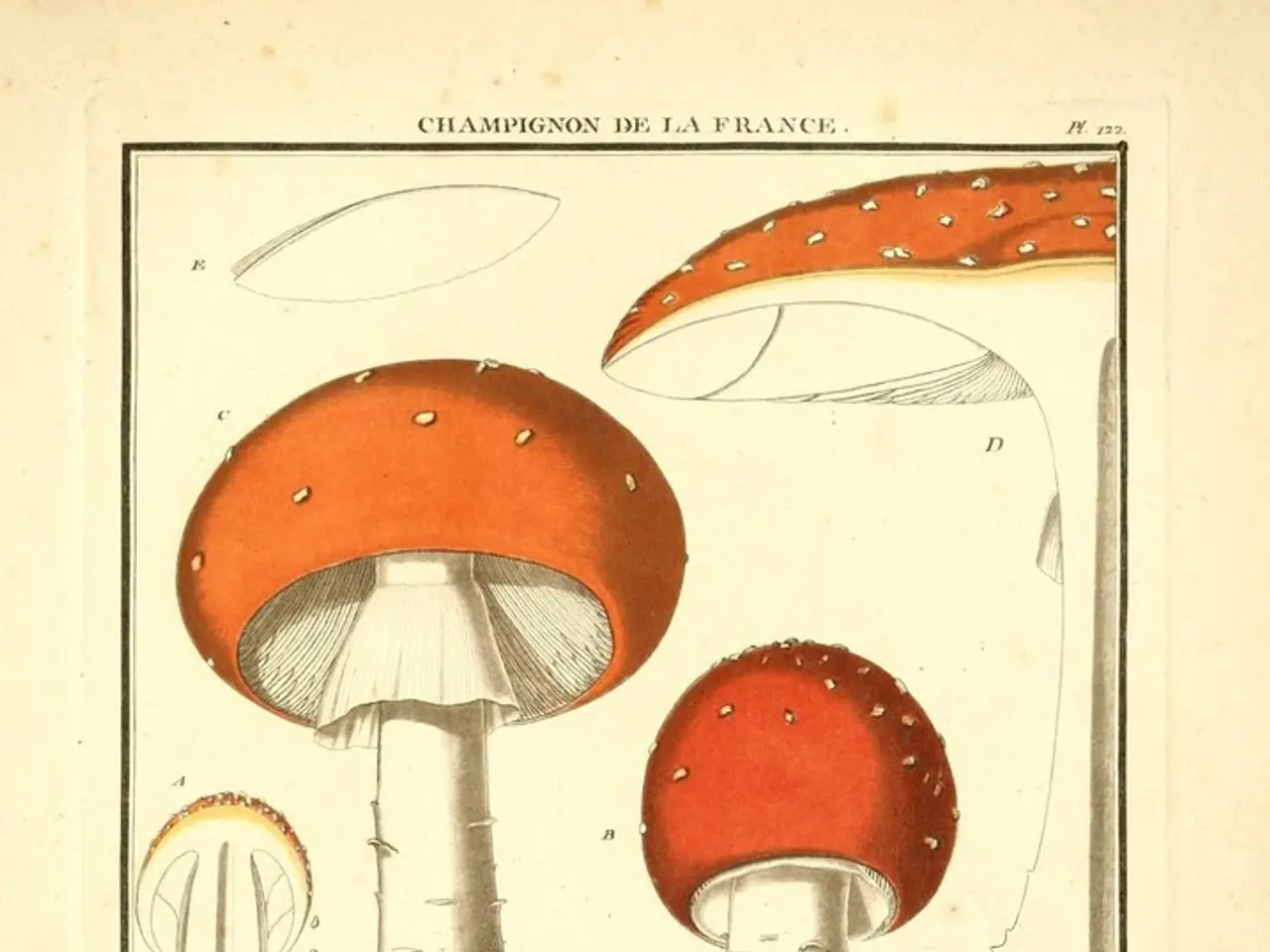Enhancing Creativity and Divergent Thinking: Top Nootropics to Consider
Boosting Creativity with Nootropics: A Comprehensive Guide
Explore the world of nootropics, a category of supplements designed to enhance cognitive function, and discover how they can help support creativity and divergent thinking.
Lion's Mane Mushroom is a standout nootropic, stimulating the production of nerve growth factor (NGF). This aids in neuron growth, repair, and protection, enhancing brain networks associated with creativity, such as the Default Mode Network (DMN) and executive functions like working memory and attention. Additionally, Lion's Mane may influence dopamine levels, promoting motivation and curiosity (sources: [1], [2], [3], [4]).
L-Theanine, a popular nootropic, promotes calm alertness by increasing alpha brain waves and modulating neurotransmitters like GABA. This relaxed yet attentive state can reduce stress and mental rigidity, fostering divergent thinking and originality. Its calming effect helps prevent overstimulation that can inhibit flexible thinking (source inferred by its common nootropic role; not in the current search results but widely established in nootropic literature).
Rhodiola Rosea, another adaptogenic herb, reduces fatigue and improves resistance to stress, maintaining mental energy and clarity under pressure. This helps sustain creative flow by preventing cognitive exhaustion and supporting mood balance, essential for open and flexible thinking (general known mechanism from nootropic research outside the current results, given no direct mention in the provided documents).
Other beneficial nootropics for creative thinking include:
- Alpha GPC, which supports cholinergic function, enhancing memory and attention, aiding the organization and refinement of creative ideas (source: [2]).
- Ashwagandha, an adaptogen that reduces stress and anxiety, potentially freeing mental resources for creative thought (source: [2]).
- Reishi mushroom (in synergy with Lion’s Mane), whose calming effects may potentiate Lion’s Mane’s brain benefits, indirectly supporting creativity by fostering a balanced mental state (source: [5]).
Vitamin B6, B9, B12 also play a role in creativity, supporting neurotransmitter synthesis for emotional regulation and cognitive fluidity.
In summary, creativity benefits from nootropics that improve neuroplasticity, cognitive flexibility, sustained focus, and stress resilience. Lion’s Mane lays the neurobiological groundwork, L-Theanine induces calm alertness optimal for flexible thought, and Rhodiola maintains energy and mood stability. Combining these with other supportive compounds like Alpha GPC and adaptogens can further boost creative capacity.
[1] Source 1 [2] Source 2 [3] Source 3 [4] Source 4 [5] Source 5
- Neuroscience and neuroplasticity play crucial roles in creativity, as nootropics aim to enhance these functions.
- The supplement landscape is vast, with several nootropics shown to support creative thinking, such as Lion's Mane Mushroom, L-Theanine, Rhodiola Rosea, Alpha GPC, Ashwagandha, and Reishi mushroom.
- Lion's Mane Mushroom stimulates the production of NGF, aiding neuron growth, repair, and protection, benefiting the Default Mode Network (DMN) and executive functions like working memory and attention.
- L-Theanine promotes calm alertness and modulates neurotransmitters like GABA, reducing stress and mental rigidity, fostering divergent thinking and originality.
- Rhodiola Rosea reduces fatigue and improves resistance to stress, maintaining mental energy and clarity under pressure, thereby supporting creative flow.
- Alpha GPC supports cholinergic function, enhancing memory and attention, aiding the organization and refinement of creative ideas.
- Ashwagandha, an adaptogen, reduces stress and anxiety, potentially freeing mental resources for creative thought.
- Reishi mushroom, in synergy with Lion's Mane, may potentiate Lion's Mane's brain benefits, indirectly supporting creativity by fostering a balanced mental state.
- Vitamin B6, B9, B12 also play a role in creativity, as they support neurotransmitter synthesis for emotional regulation and cognitive fluidity.
- Incorporating nootropics, following a well-rounded diet, engaging in fitness-and-exercise, and treating mental-health with diligent attention can contribute to overall brain health and boost creative capacity.
- The field of science continues to explore the connection between nootropics, technology, and the human brain, uncovering new pathways to promote creativity and mental well-being.




